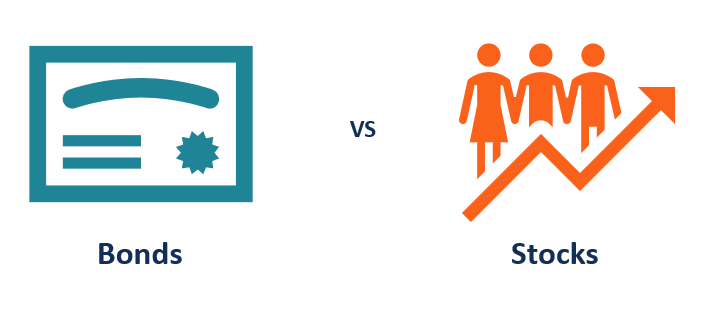When companies need to raise capital, they have two primary options: borrowing money or selling ownership stakes. These two methods give rise to two fundamental financial instruments: stocks and bonds. Understanding the distinctions between these can help investors make informed decisions.
What Are Stocks?
Stocks, also known as equities, represent ownership in a company. When you purchase a stock, you acquire a share in the company, making you a partial owner.
For example, if a company has 10 million shares and you own one share, you own 1/10,000,000th of that company. The value of your share depends on the company’s financial health and performance. If the company’s assets total $10 million but it owes $6 million in liabilities, the remaining $4 million is the equity, or shareholders’ ownership. Divided among 10 million shares, each share represents $0.40 of equity.
Key Features of Stocks:
-
Ownership: Stocks confer partial ownership, entitling you to a proportion of the company’s profits (via dividends) or gains (if the share price rises).
-
Risk and Reward: Shareholders benefit if the company thrives but bear losses if it falters. In cases of bankruptcy, shareholders are the last to be compensated, after debt holders.
-
Dividends: Companies may share profits through dividends, though these are not guaranteed.
Stocks are bought and sold on stock exchanges, making them easily accessible to individual and institutional investors. Prices fluctuate based on market conditions, company performance, and investor sentiment.
What Are Bonds?
Bonds, on the other hand, are debt instruments. When you buy a bond, you are essentially lending money to the issuer, which could be a corporation or a government. The issuer agrees to pay back the principal amount at a set date in the future (maturity date) and to make periodic interest payments (coupon payments) until then.
For instance, a company needing $6 million might issue 6,000 bonds at $1,000 each. Each bondholder receives a certificate stating that the company owes them $1,000, payable at a future date, along with periodic interest payments.
Key Features of Bonds:
-
Debt: Bondholders are creditors, not owners, of the company.
-
Fixed Returns: Bonds typically provide regular interest payments, making them more predictable than stocks.
-
Priority in Bankruptcy: In cases of liquidation, bondholders are paid before shareholders, making bonds less risky.
-
Types of Bonds: Some bonds pay periodic interest (coupon bonds), while others, like zero-coupon bonds, accumulate interest and pay it along with the principal at maturity.
Unlike stocks, bonds are not as easily traded by retail investors. Accessing bond markets often requires specialized platforms or brokers.
Key Differences Between Stocks and Bonds
| Aspect | Stocks | Bonds |
|---|---|---|
| Nature | Ownership stake | Debt obligation |
| Returns | Dividends and capital gains | Fixed interest payments |
| Risk | Higher risk, dependent on company success | Lower risk, fixed repayment terms |
| Bankruptcy Priority | Last to be paid | First to be paid |
| Trading | Traded on stock exchanges | Requires specialized platforms |
An Example: Capital Raising in Action
Consider a company with $10 million in assets and $6 million in liabilities. The remaining $4 million represents the shareholders’ equity. If this company decides to borrow more money, it might issue bonds totaling $2 million. These bonds would promise fixed interest payments to bondholders. Alternatively, the company could sell additional shares, diluting the ownership among a larger group of shareholders but raising the needed capital without taking on additional debt.
In either case, the choice between issuing stocks or bonds depends on factors like interest rates, the company’s financial health, and market conditions.
Choosing Between Stocks and Bonds as an Investor
When deciding whether to invest in stocks or bonds, consider your financial goals and risk tolerance:
-
Stocks: Suitable for long-term growth and those willing to accept higher risks.
-
Bonds: Ideal for generating steady income and preserving capital, particularly for risk-averse investors.
Diversifying your portfolio by holding both stocks and bonds can balance risk and reward, ensuring stability while pursuing growth.
By understanding the fundamental differences between stocks and bonds, investors can make informed choices, aligning their investments with their financial objectives.

